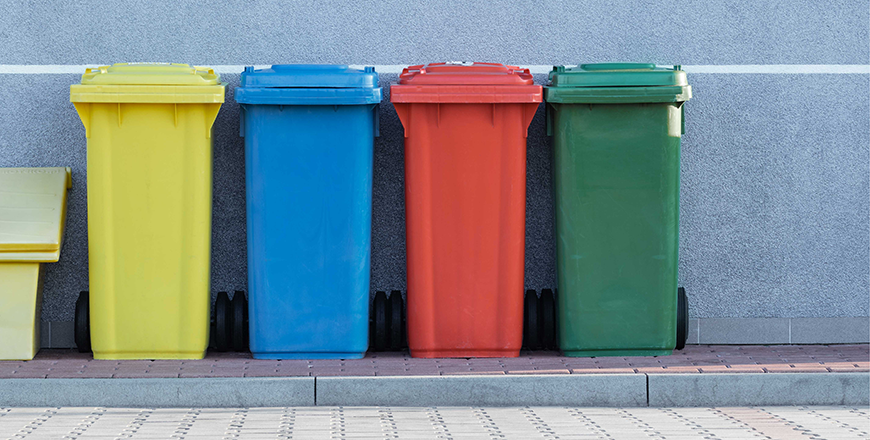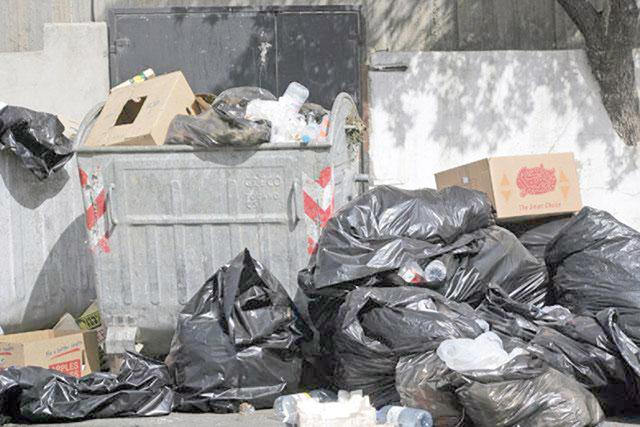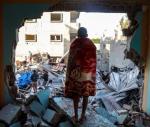You are here
Waste segregation at source key step in management, say experts
By Sara Faqir - Jan 12,2023 - Last updated at Jan 12,2023

Representative image (Photo courtesy of unsplash/ Pawel Czerwinski)
AMMAN — Even after implementing a slew of policies and programmes, Solid Waste Management (SWM) remains a challenge for Jordan, according to environmental experts.
Significant waste management issues have arisen as a result of the enormous amounts of municipal solid waste that have been generated, negatively impacting the environment.
Mothana Altayem, a project coordinator and research assistant at the Jordan Green Building Council, said: “According to the International Solid Waste Association (ISWA), SWM is a system that aims to promote sustainability and transition to a circular economy as well as maintain a clean and healthy environment by reducing, reusing, recycling and converting waste into energy. It also manages the waste from creation, collection, storage, transport, and finally to disposal.”
In recent years, the government and non-governmental organisations (NGOs) have implemented policies and programmes to deal with municipal solid waste. The challenges remain ongoing; but efforts have helped the country shift towards a more environmentally friendly solution that encompasses the entire waste management cycle, say environmentalists.
According to experts, landfills are considered the final resort in the waste disposal hierarchy, as they emit methane, a strong greenhouse gas linked to climate change.
Landfills cause the leaching of toxins, as many materials that end up as waste, such as electric waste contain toxic substances that can leach into groundwater and soil. Other waste materials emit greenhouse gases like methane and carbon dioxide that are considered major contributors to climate change.
The Greater Amman Municipality (GAM) is in charge of delivering municipal services across 22 city districts. These include municipal cleaning services, waste collection, transfer to the ShaerWaste Transfer station and disposal at the Ghabawi Solid Waste Landfill, which is overseen by GAM, according to the GAM website.
Osama Abu Rumman, head of environment division at GAM, told The Jordan Times that “GAM’s project, which has been functioning since 2019, to handle methane gas emissions at Ghabawi Solid Waste Landfill has made a positive impact, as gas emissions are converted to green electricity at around 4.5 Megawatts, which contribute to solving the Kingdom's growing demand for electricity”.
GAM is working on several SWM-enhancing projects targeted at reducing carbon emissions, prolonging the landfill lifetime and encouraging people to sort waste correctly from the source, Osama added.
“In Amman's districts, people unfortunately do not separate their waste at the source. There is also the disadvantage of a lack of adequate infrastructure to set up recycling facilities and waste disposal systems that would facilitate sorting,” he said.
Currently, a number of programmes are attempting to solve the primary problem of not sorting waste at the source. Murad Al Shishani, a Projects Coordination Manager (Solid Waste Management Programme) at UNDP, told The Jordan Times that “UNDP has set up a ‘sorting from the source’ project in Northern Shouneh that is based on the participation of the community through forming a women’s association”.
According to Shishani, UNDP has conducted SWM projects in the Kingdom since 2015.
“UNDP has constructed the first sanitary landfill cell at Al Akaider Landfill through a landfill rehabilitation project…UNDP has also constructed a composting plant in Mafraq under this project, where this successful model is currently under the process of advertisement as an investment opportunity by the government. Also, it has rehabilitated and constructed two municipal solid waste transfer stations that contributed to the closure of two dump sites,” he said.
Current UNDP projects include the rehabilitation of Al Shoubak waste transfer station, the construction of a materials recovery facility and a new composting plant in the Southern Region of Jordan, according to Shishani.
“This will have an impact on the cleanliness level of the municipalities of Maan Governorate and the Petra Development & Tourism Region Authority (PDTRA), and will also contribute to the generation of income for families in these areas,” he said.
UNDP is also assisting the Ministry of Local Administration in the construction of the new Azraq Sanitary landfill.
“We are also working with the Ministry of Environment on different streams of waste including medical, electronic and electrical, and municipal waste under a project concerned with the reduction and elimination of persistent organic pollutants with a fund from Global Environment Facility (GEF),” Shishani added.
These efforts have different aspects concerned with the legal framework, capacity building, and the provision of infrastructure and equipment to facilitate environmentally friendly waste management practices, Shishani noted.
Related Articles
AMMAN — New management buildings and infrastructure were launched by the UNDP on Wednesday at Al Ekeider landfill, according to a UNDP state
AMMAN — In the Kingdom, recycling efforts are relatively low-priority for citizens, as 56.7 per cent of Jordanians struggle with “fragile an
AMMAN — Growing industrialisation, high population growth and immigration rate have led to a rapid increase in solid waste generation in Jor

















